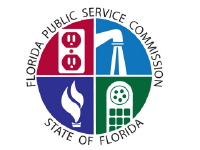Regulators Turn Down Arguments on FPL Rates
 By Jim Suanders
By Jim Suanders
In an issue that stems from federal tax cuts approved in 2017, state regulators on Tuesday rejected an effort aimed at forcing Florida Power & Light to reduce base electric rates.
The state Office of Public Counsel, which represents consumers, and two business groups have long argued that FPL has not properly passed along savings from the 2017 federal tax overhaul to ratepayers. They filed a case at the state Public Service Commission in December 2018 seeking lower rates.
But the commission on Tuesday closed the case, after backing FPL last year in a closely related issue about using tax savings to help cover costs from 2017’s Hurricane Irma.
The dispute has centered on decisions by FPL to use the tax savings to replenish a reserve fund instead of passing the money along to customers through lower rates. After Irma, for example, the utility tapped the reserve to pay power-restoration costs. It argued that subsequently using tax savings to replenish the reserve prevented customers from having extra costs added to their monthly bills to pay for restoration.
Maria Moncada, an FPL attorney, told the commission Tuesday that using the reserve also will help cover additional expenses related to last year’s Hurricane Dorian and the coronavirus pandemic. She said that helps provide “rate stability” for customers.
“That’s two avoided storm charges and five years of rate stability that have been afforded to customers over this time period,” she said, referring to rates that are expected to continue until 2022.
But state Deputy Public Counsel Charles Rehwinkel said FPL’s handling of the tax savings is an “outlier” in Florida and across the country and results in $772 million a year not being passed through to customers. The Florida Retail Federation and the Florida Industrial Power Users Group, which frequently intervene in utility issues, have backed the Office of Public Counsel on the issue.
“As we enter into uncertain times resulting from the global pandemic, it seems that, more than ever, the many customers of FPL who are struggling to make ends meet could use their overpaid tax money now, especially since the $772 million belongs to them in the first place,” Rehwinkel said.
But after its decision last year on the use of the tax savings to cover Hurricane Irma costs, the Public Service Commission closed the case Tuesday with relatively little discussion. Commissioner Donald Polmann said the issues in the case have already been resolved or were no longer relevant.
Commissioner Julie Brown praised FPL’s approach in using the reserve.
“The reserve mechanism, as Ms. Moncada pointed out, has been advantageous to customers on so many levels and continues to provide that rate stability in such trying times,” Brown said.
The federal tax overhaul, passed in late 2017, lowered the corporate income-tax rate from 35 percent to 21 percent, producing large savings for FPL and other utilities.
FPL’s use of the reserve and the tax savings to pay Irma costs was different from how such storm-related expenses have typically been handled. Utilities have regularly been allowed to pass along costs to consumers for restoring power after hurricanes, but those costs have been tacked onto customer bills for periods of time.
Article reposted with permission from The News Service of Florida.
 Enter your email address in the
Enter your email address in the 